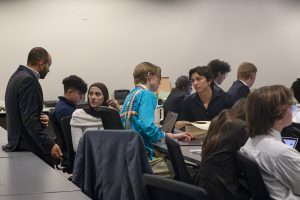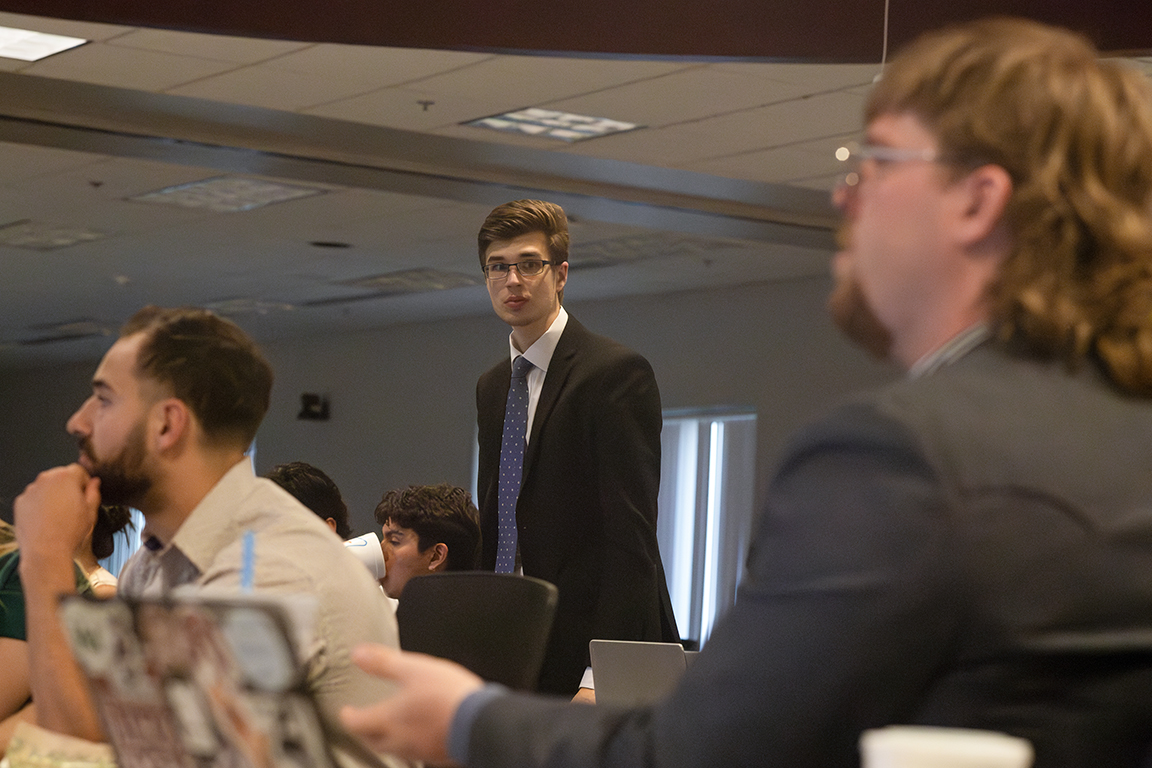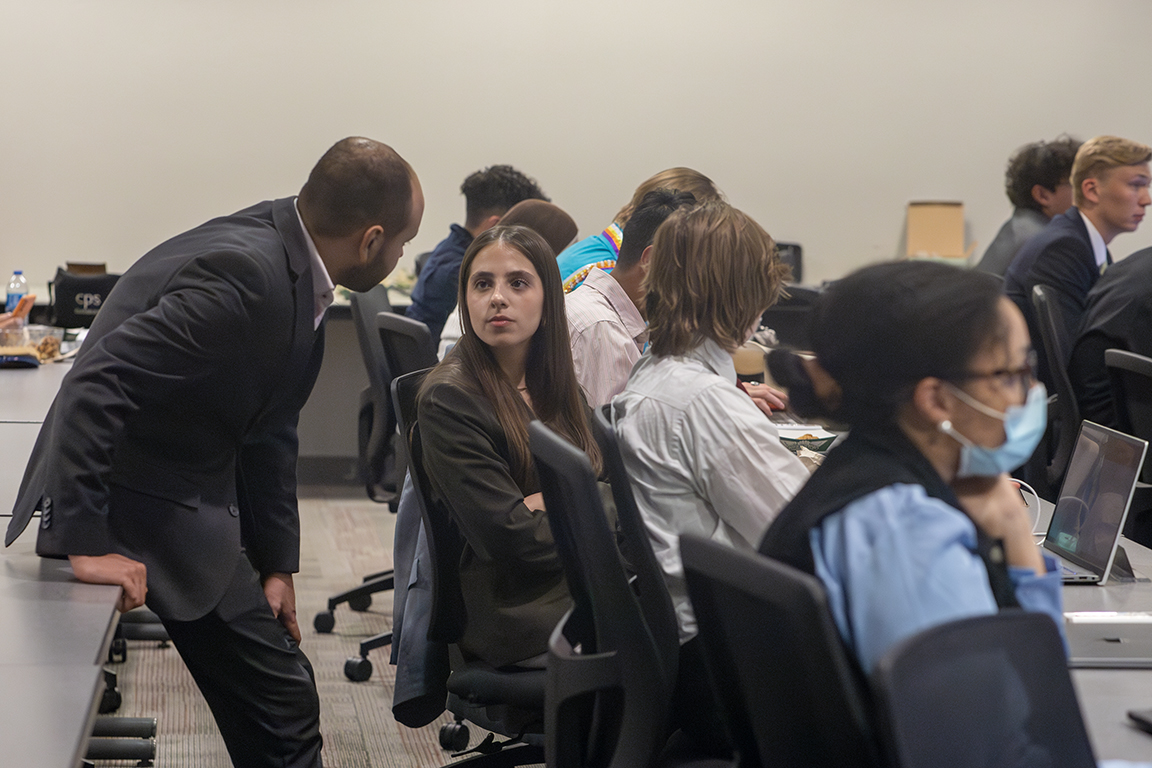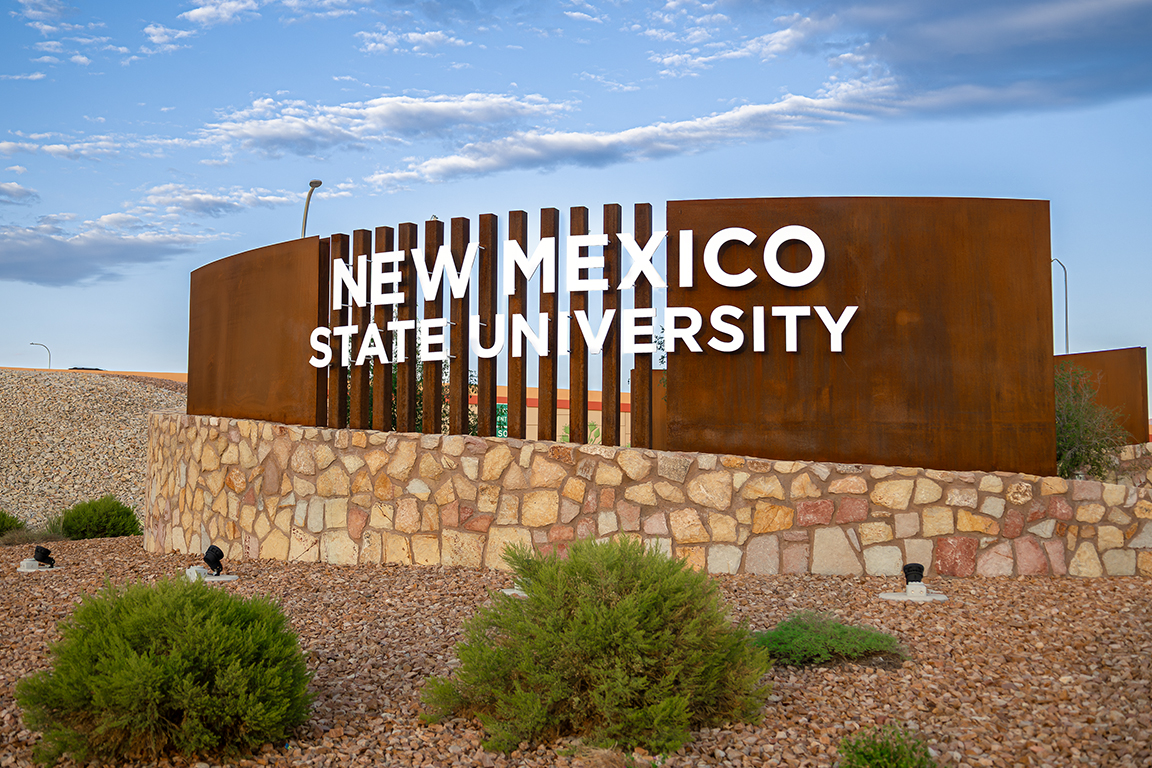The 68th Senate of the Associated Students of New Mexico State University met on April 10 with the primary goal of spending as much of the remaining $191,000 in the NMSU expense account before the end of the semester.
During this semester’s ASNMSU presidential and vice-presidential debates, attendees raised concerns about the senate’s failure to disperse money from their expense account to constituents. This money can only be used on individual students and university organizations. The end of the spring semester will mark the end of when the money can be awarded.
It was stressed to the senate that the association should aim to award $100,000 during the meeting to get rid of the remaining funds before the semester’s end. While many bills requested large sums of money, one of which was Bill 347.
Bill 347 was presented by Sen. Jarrod Moseley and it asked for $13,000 for the NMSU chapter of the American Marketing Association to attend the AMA International Collegiate Conference in New Orleans.
Exemplified by the windmill bill debate, there is a $10,000 cap on the amount of money a club or organization can request and receive from the senate, with the exception of the one-time use emergency funds. For the bill to pass, Moseley requested the senate suspend the bylaws that cap this, reminding his fellow senators of the urgency of giving out money.

“I would like to just point out, our expense account has $191,000, the comptroller recommended we spend $91,000 this meeting,” Moseley said. “So, with that I move to suspend bylaw 7-4-3-h-1.”
The topic of suspending bylaws has been hot on the senate floor for some time, with Sen. Hebah Alhalholy being one of the largest advocates in support of not suspending bylaws. However, given the circumstances, Bill 347 was proposed, she took time to express her favor of suspending bylaw 7-4-3-h-1, which has yet to be added to the ASNMSU webites, for the time it takes to pass the bill.
“I would just like to say usually I am a very hard advocate on not suspending the bylaws, but for reasons like this, I think [the AMA] is a very good reason to suspend bylaws,” Alhalholy said.
The move to suspend bylaw 7-4-3-h-1 was voted on and passed, along with Bill 347.
Most bills following Bill 347 were passed without issue. However, Resolution 28, introduced by faculty senate representative Sen. Nikolas Romero stirred controversy amongst the senate.
Resolution 28 would allow for the establishment of the Collegiate House of ASNMSU, which according to legislation, “the Collegiate House shall serve as a representative body of all College Councils within the ASNMSU, providing collegiate perspective on legislation, particularly amendments, and serving as a forum for inter-collegiate coordination and advocacy…”
The collegiate house, which would be made up of representatives from the college councils, would also have the responsibility to “review and affirm or dissent” all amendments going to the senate.
Sen. Maisie O’Neil brought up two immediate concerns she had regarding the resolution. The first concern was on how much time the collegiate house would add to the awarding process, and the second was about bout the potential, unpaid work the house would add for the college councilmen.

Romero assured the senate that if everything is done correctly, time should not be a concern, and that the resolution was agreed upon by a majority of collegiates.
“[In regard] to [the collegiate house] being extra work, every college council, except I believe one, unanimously pushed through the bylaws to have this position be a thing,” Romero said.
During the senate’s floor discussion, O’Neill asked Romero what colleges the resolution passed through. There, it was revealed, and it was revealed that the resolution was never properly presented to the College of Health, Education, and Social Transformation. Sen. Benedek Szalai raised another concern about improperly informing the other college councils on the resolution. He stated the College of Engineering was not informed the resolution would create a collegiate house.
“I just confirmed with the engineering council [that] this was not put on our agenda,” Szalai said. “We only approved the general council of councils bylaw changes that we saw earlier, so with my understanding, this would make this illegal.”
While some senators wanted to hold the decision to create a collegiate house off for another day, Sen. Gage Anderson was one of the strong proponents of voting ‘no’ on the resolution that meeting.
“This seems like a pretty big overstep, especially if this gets punted back to senate…,” Anderson said. “I think if you are in [the College of Agriculture, Consumer & Environment Science] or the other college councils that did not see this, I think it is in your right mind to vote ‘no’ against this. I believe it is in our best interest as senators, and for our constituents, to just vote ‘no’ on this now so we don’t have to worry about seeing something, frankly, this preposterous again.”
O’Neill from the College of HEST and Sen. Kolby Graham Taylor from the College of Agriculture, Consumer & Environmental Science relayed information from the council presidents. They clarified the presidents were not in favor of the bill and in the name of their respective colleges asked for the resolution to be tabled and receive an unfavorable recommendation through a Committee of the Whole, which passed.
While this meeting can be viewed on the official ASNMSU Facebook page, on their official website, only 27 seconds of the over three-hour-long meeting have been up-loaded. The current bills are also not available as of this article being downloaded due to the general attorney’s office being out from April 10-20.











